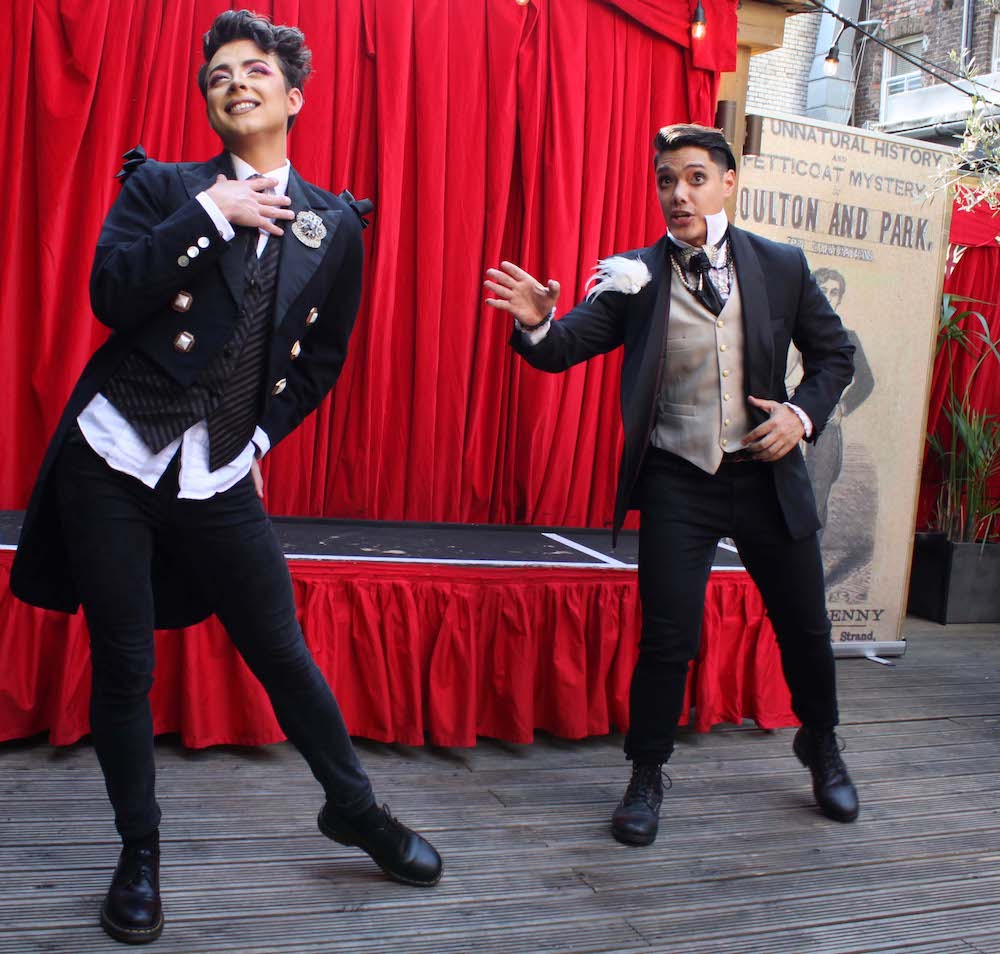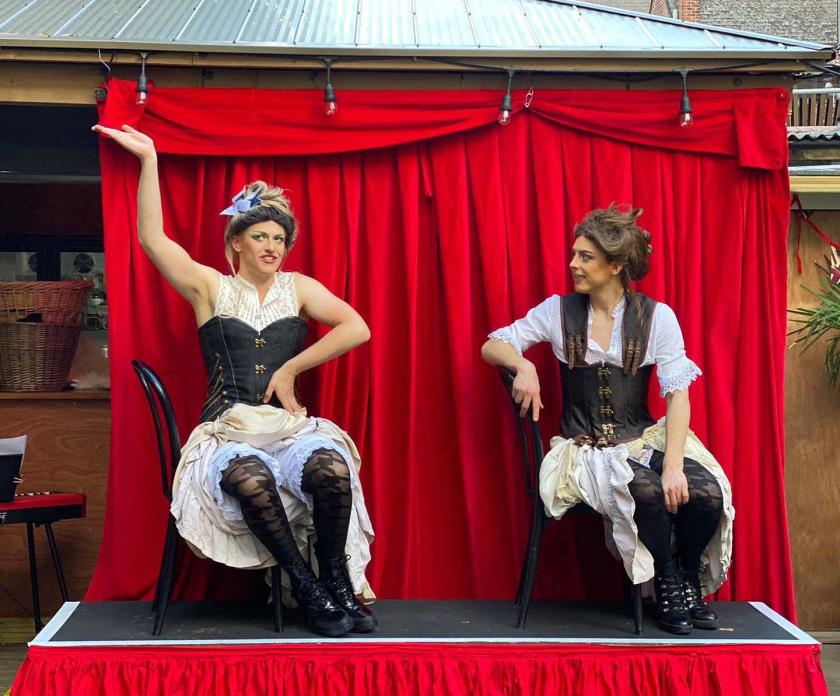In a purgatorial summer, this boisterous, camp and chaotically charming musical is a tonic. It’s a winning combination of slick and slapdash, performed before a masked, socially distanced audience in a hastily repurposed beer garden behind the Eagle pub in Vauxhall.
Aptly, its fascinating, fact-based story is one of triumph over adversity. Fanny and Stella were two comely Victorian ladies with a penchant for theatricals, who led double lives. Beneath their paint and petticoats, they were Frederick William Park and Thomas Ernest Boulton, cross-dressing young gay men from well-to-do families, who posed as sisters. Given that homosexuality was illegal, they flirted dangerously with the limits of respectability; Boulton had a relationship with the Liberal MP Lord Arthur Clinton, and even passed himself off as his wife. In 1870, the pair were arrested, while in drag, and charged with conspiracy to commit sodomy. Astonishingly, the sensational court case ended in acquittal, thanks to a lack of proof of anal sex.
With a book and lyrics by Taggart creator Glenn Chandler and a jaunty pastiche music-hall score by Charles Miller, Fanny and Stella, first seen in 2015, tackles these key events from queer history with a wink, and its tongue planted firmly in its cheek. There’s a delicious defiance about its s/heroes’ outright refusal ever to play the victim. And the depiction of newspaper journalists covering the trial for their eager readers is pleasingly pointed, the broadsheets shuddering and pearl-clutching while hinting heavily at its more salacious aspects, and the tabloids pruriently revelling in every lurid detail of sphincter dilation and penis size. But the show’s breeziness comes at the cost of emotional heft. We’re never really allowed to feel the full dread of what threatened Boulton and Park, a sentence, like Oscar Wilde’s, of hard labour on the treadmill (a particularly striking omission, given that we learn in an interesting side note that Park’s older brother, Harry, who was also gay, served a year-long hard labour sentence for a bungled liaison with a police officer). Even a brutally intimate medical examination is played for laughs. The characters are greasepaint sketches, and the plot sometimes gets garbled among the saucy hijinks.
But the show’s breeziness comes at the cost of emotional heft. We’re never really allowed to feel the full dread of what threatened Boulton and Park, a sentence, like Oscar Wilde’s, of hard labour on the treadmill (a particularly striking omission, given that we learn in an interesting side note that Park’s older brother, Harry, who was also gay, served a year-long hard labour sentence for a bungled liaison with a police officer). Even a brutally intimate medical examination is played for laughs. The characters are greasepaint sketches, and the plot sometimes gets garbled among the saucy hijinks.
For all that, though, Stephen Dexter’s production is hard to resist. David Shields’ design, with its pot plants and red velvet curtains, is part palm court, part theatre. Our dauntless duo – Jed Berry’s Stella, and Kane Verrall’s Fanny – are togged up in flounces, bloomers and leather corsets, or, in their male guise, in period waistcoats teamed with skin-tight jeans and DMs. Along with a four-strong supporting cast, they strut, swirl and flounce through such cheerfully ribald numbers, choreographed with high-kicking verve and economy by Nick Winston, as Sodomy on the Strand and Has Anyone Seen My Fanny?
Verrall has a lovely voice and his Fanny is a nice mix of wistful and waspish, while Berry’s Stella (pictured above with Joaquin Pedro Valdes as one of his conquests, photo Alex Hinson) is exuberant, extravagant fun, an outrageous flirt who pouts, parades and strops while grinding multiple men’s affections beneath a high-heeled bootee. And who couldn’t use a dose of that flamboyant fortitude right now? For anyone connected with theatre, there are precious few reasons to be cheerful, with the industry battered by the double blow of the Coronavirus and governmental dithering incompetence. This beguiling show, while it makes no pretensions to high art, is a welcome twinkle of hope.















Add comment